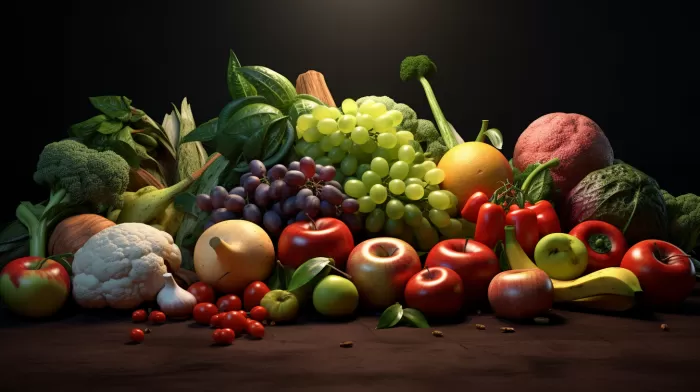The question of whether we really need vitamin supplements has been debated for years. Many of us have taken vitamins for as long as we can remember, starting with chewable versions, then graduating to adult multivitamins, vitamin D supplements when the days get shorter, vitamin C during cold season and vitamin E for antioxidant protection. While our bodies do need vitamins, new research indicates that synthetic, isolated varieties may not be providing the health benefits we expect.
It is thought that vitamins work better when taken with other naturally-occurring nutrients found in foods. Whole, unprocessed foods offer hundreds of unique compounds such as indoles, terpenes, organosulfides, isothiocyanates and many others that promote health in ways scientists are only beginning to understand.
For example, some research suggests that flavonoids primarily work to influence gene expression and cell signaling. One flavonoid called luteolin, found in foods like celery, parsley and thyme, has been shown to inhibit cell signaling in colon cancer. These and other studies reinforce the idea that whole, unprocessed food should be our primary source of nutrients.
When are supplements useful?
No amount of vitamin supplementation can compensate for a poor diet. However, does a good diet negate the need for supplements? This depends on the vitamin, how the body absorbs it and the nutritional needs of each individual.
Generally, it’s best to obtain vitamins from food and food-based products, which can include powdered super-fruits and vegetables, as well as other nutritional supplements made from botanical extracts.
There are exceptions, however. For instance, the best way to get vitamin D is by sun exposure, just be careful not to burn. Also, certain B vitamins can be difficult for some people to absorb from food. Many elderly people have trouble absorbing B12, so a natural supplement can help. Vegetarians may also need to consider supplementation, as their body doesn’t absorb plant-based iron as well as meat-based, and they may need good sources of B12 and folate.
In these instances, whole food-based vitamins and concentrates are often recommended.
Foods vs. supplements
The debate between food and supplements has become more complex as our understanding of nutrition has evolved.
For example, while we can get omega-3 fatty acids from supplements, there are other nutrients we miss by not eating fish, such as selenium and vitamin D. We also risk losing the enzymes that come with the whole food, impairing absorption and overall nutritional value.
Cruciferous vegetables (broccoli, cabbage, kale, etc.) are particularly rich in vitamins and minerals, but it’s their unique phytonutrients that really set them apart. One family of cancer-fighting compounds, glucosinates, is abundant in broccoli and is also incorporated in supplements. However, by isolating glucosinates from important enzymes in the whole plant, we reduce their absorption and effectiveness. Researchers at Oregon State University found that the body absorbs five times less glucosinate from supplements than it does from raw or lightly steamed broccoli.
Various fruits, such as blueberries, raspberries and strawberries, are rich in vitamin C, flavonoids and ellagic acid. Onions, garlic and related foods provide organosulfides, which can help neutralize cancer-causing compounds. They also thin the blood, which can prevent heart disease.
Carotenes are found in bright orange and yellow vegetables like tomatoes, oranges, peppers, and carrots and have been shown to fight cancer. These vegetables are also good sources of lycopene and other antioxidants, including vitamin C.
Chia seeds have a fantastic health profile, helping to modulate glucose metabolism, lower the inflammatory marker C-reactive protein and decrease blood pressure. Algae such as spirulina and chlorella are incredible sources of nutrition, rich in antioxidants, minerals, and B vitamins, and have antiviral and antibacterial properties.
Medicinal mushrooms such as reishi and cordyceps offer powerful nutritional and therapeutic properties. Mushrooms are rich in vitamins D and B complex, as well as potassium, calcium, iron, selenium, magnesium and antioxidants.
Vitamins, by definition, are nutrients the body cannot synthesize by itself. It’s essential that we find the most effective methods to supply them. Whole food is once again the best medicine. By setting a nutritional foundation with an abundance of diverse, unprocessed foods, we can then add targeted, natural supplements to enhance health even further, according to our needs.



